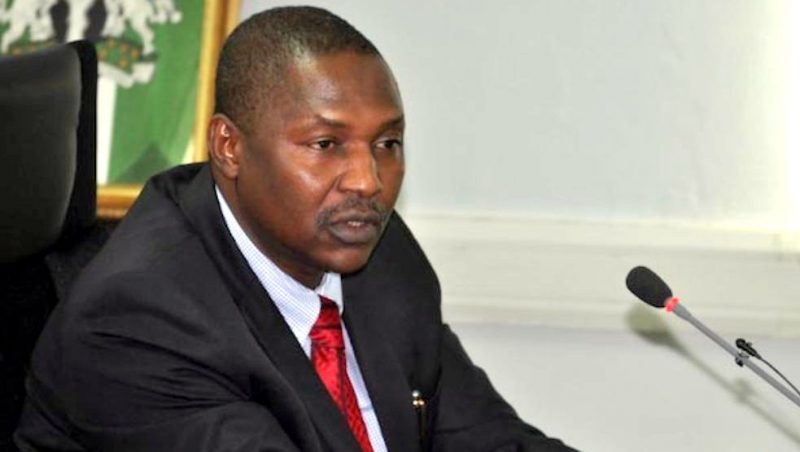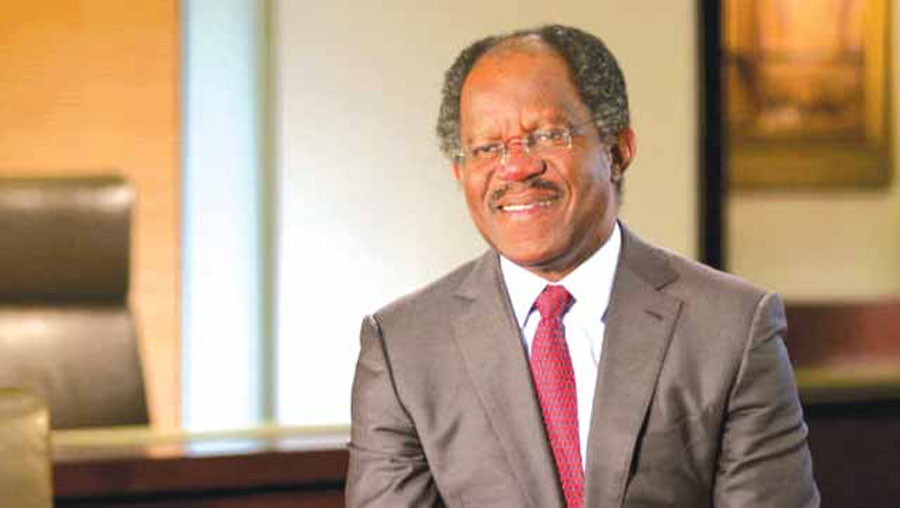News
400 suspects to be arraigned for funding Boko Haram, bandits

About 400 suspects arrested for funding Boko Haram insurgents and bandits will soon face trial, it was learnt on Tuesday.
But, all courts across the country have been shut since April 6, owing to the nationwide strike by the Judiciary Staff Union of Nigeria (JUSUN) over financial autonomy for the judiciary.
The suspects were arrested in an operation coordinated by the Defence Intelligence Agency (DIA), the Department of State Services (DSS), Nigerian Financial Intelligence Unit (NFIU) and the Central Bank of Nigeria (CBN).
They were arrested in Kano, Borno, Abuja, Lagos, Sokoto, Adamawa, Kaduna and Zamfara in an operation said to have been approved by President Muhammadu Buhari in 2020.
A list containing names of 957 suspects comprising bureau de change (BDC) operators, gold miners and sellers as well as other business persons is still being acted upon.
Some of the BDC operators arrested include Baba Usaini, Abubakar Yellow (Amfani), Yusuf Ali Yusuf (Babangida), Ibrahim Shani, Auwal Fagge and Muhammad Lawan Sani, a gold dealer.
Umar Gwandu, spokesperson to Attorney-General of the Federation (AGF), Abubakar Malami, on Monday, said criminal charges bordering on terrorism were already being prepared against the suspects while investigation continues.
Although the spokesperson declined to give further details, he said the prosecution of the suspects “will commence as quickly as possible”.
-The Nation
News
Tax reforms pro-poor, here to stay, says Tinubu

Tax reforms pro-poor, here to stay, says Tinubu
President Bola Tinubu has said the tax reforms initiated by his administration are here to stay.
He stated this during the presidential media chat on Monday, adding that the new tax deal is pro-poor people.
Tinubu also said the tax reforms were initiated to “eliminate colonial-based assumptions” in the country’s tax environment.
Nigeria, he said, would not continue to use old methods in today’s economy.
The President said those calling for more consultations on the tax reform bills would still do so even if he delayed the presentation.
“Tax reform is here to stay. In today’s economy, we cannot continue to do what we were doing in the past. We can’t retool with old and broken folks,” he said.
“The essence of tax reform is to eliminate colonial-based assumptions in our tax environment
“Every tax situation without outcry is not a tax. You can’t satisfy uniformly the largest community of tax evaders. Look at this tax reform; it is pro-poor. The vulnerable are not to pay taxes.
“The hallmark of a good leader is the ability to do what you have to do at the time it ought to be done. That is my philosophy.”
News
Adebayo Ogunlesi, 2 other Nigerians make Forbes 50 wealthiest Black Americans list 2024

Adebayo Ogunlesi, 2 other Nigerians make Forbes 50 wealthiest Black Americans list 2024
Forbes has unveiled its 2024 ForbesBLK 50 list, celebrating the achievements of the wealthiest and most influential Black Americans.
Among the honorees are three Nigerians—Adebayo Ogunlesi, Tope Awotona, and Wemimo Abbey—whose groundbreaking contributions and entrepreneurial successes have earned them places on this prestigious list.
The ForbesBLK 50 is a reimagining of Forbes’ 2009 Wealthiest Black Americans list, which then featured figures like Oprah Winfrey, Michael Jordan, and Magic Johnson.
While net worth remains a core metric, the new list also highlights innovation, societal impact, and leadership across diverse industries.
Adebayo Ogunlesi, with a net worth of $1.7 billion, stands out as a pioneering force in global infrastructure investment. As chairman and cofounder of Global Infrastructure Partners (GIP), Ogunlesi led the private equity firm through a transformative acquisition by BlackRock in 2024 for $12.5 billion.
- Ogunlesi, a Harvard-educated lawyer and banker, previously spent over two decades at Credit Suisse before launching GIP in 2006.
- His influence extends beyond business, as he has become a key figure in reshaping infrastructure investment on a global scale.
Also, Nigerian entrepreneur,Tope Awotona, the founder and CEO of Calendly, has redefined efficiency in scheduling and holds a net worth of $1.4 billion.
READ ALSO:
- Presidency to Power Minister: Fast-track mass metering, Katsina Hybrid/Solar plant
- Ibadan stampede: Tinubu orders probe as death toll hits 40
- FG transfers electricity market regulatory oversight in Lagos to LASERC
- Born in Lagos, Awotona moved to Atlanta as a teenager and pursued business and management information studies at the University of Georgia. After early entrepreneurial setbacks, he launched Calendly in 2013, driven by frustration with cumbersome meeting coordination. The platform, which raised $350 million in 2021, is now valued at $3 billion and serves millions of users worldwide.
Although not a ranking, Wemimo Abbey, at just 32, is the youngest Nigerian on the list and cofounder of Esusu, an African fintech company addressing financial inclusion. Esusu helps renters build credit by reporting rent payments to credit bureaus, a service utilized by more than 20,000 properties and benefiting 1.8 million Americans.
- In 2022, Esusu achieved a $1 billion valuation following a $130 million funding round. Abbey, who grew up in Lagos, has a background in mergers and acquisitions consulting and a passion for leveraging technology to drive social impact.
These three Nigerians show innovation, resilience, and the drive to address pressing global challenges. Their inclusion on the ForbesBLK 50 list is a foretelling of their entrepreneurial vision and the increasing influence of Nigerians on the global stage.
The ForbesBLK 50 list, launched under ForbesBLK, aims to go beyond net worth to measure impact and influence within the Black community and beyond.
Adebayo Ogunlesi, 2 other Nigerians make Forbes 50 wealthiest Black Americans list 2024
News
Northern youths say new tax regime bill designed to ruin region

Northern youths say new tax regime bill designed to ruin region
Coalition of Northern Groups, Taraba State chapter, has expressed concerns that the proposed Tax Reform Bill by President Bola Ahmed Tinubu’s administration is cunningly designed with all premeditated intent and purposes to further develop the southern Nigeria at the expense of the north.
The northern youths, who lamented the economic hardship in the country, concluded that the effect bears more scars on the region than any other.
Aside from the new Tax Reform Bill, the group also condemned the federal government’s land-border closure, alleging that the ideas favour the South more than the North.
The group, in a statement signed by its coordinator, Comrade Idris Ayuba, made available to Vanguard Correspondent in Ilorin alleged that most difficulties the North faces are the repercussions of the decisions, citing the effect of Petroleum subsidy removal, land border closure and the new tax regime as few examples.
He noted in the statement that”reduction in the consumption of a capital commodity like petroleum occasioned by the subsidy removal is not a manifestation of a positive policy impact; it rather indicates reduced economic activities that force people out of energy consumption,”
On the land border closure, Idris said: “One of the primary concerns is the impact of this policy on the regional economy, which has been heavily reliant on cross-border trade with neighbouring countries. The closure has resulted in significant losses for traders and business owners in the region, exacerbating poverty and unemployment.
“The policy has given undue advantage to Southern Nigeria, for instance, the closure has led to an increase in demand for locally produced goods in Southern Nigeria, which has boosted the southern regional economy.
READ ALSO:
- Syria not threat to world, rebel leader al-Sharaa tells BBC
- Tinubu’s 2025 budget will increase poverty, worsen economy – PDP
- Real Madrid outclass Pachuca to win FIFA Intercontinental Cup
“Additionally, the Southern region has benefited from the increased revenue generated from customs duties and taxes on imported goods.
“The closure has also created an imbalance in the distribution of economic opportunities, with Southern Nigeria having greater access to ports and international trade routes.
” This has resulted in a concentration of economic activity in the Southern region, further marginalizing Northern Nigeria,” Idris explained in the statement.
Northern youths say new tax regime bill designed to ruin region
-

 Railway2 days ago
Railway2 days agoLagos Rail Mass Transit part of FG free train ride – NRC
-

 metro2 days ago
metro2 days agoWhy we displayed ‘Jesus Christ is not God’ banner at Lekki mosque -Imam
-

 metro3 days ago
metro3 days agoIbadan stampede: Ooni reacts after arrest of ex-wife
-

 metro3 days ago
metro3 days agoNIMC warns against extortion, reaffirms free NIN enrollment
-

 metro3 days ago
metro3 days agoLike Ibadan, stampede claims 10 lives for Abuja Catholic church, 17 in Anambra
-

 Uncategorized3 days ago
Uncategorized3 days agoMarketers react after NNPCL slashes petrol price to N899 per litre
-

 metro3 days ago
metro3 days agoElectricity: We installed 184,507 meters, issued 50 licences in Q3, says FG
-

 metro21 hours ago
metro21 hours agoFG declares three days as public holidays

